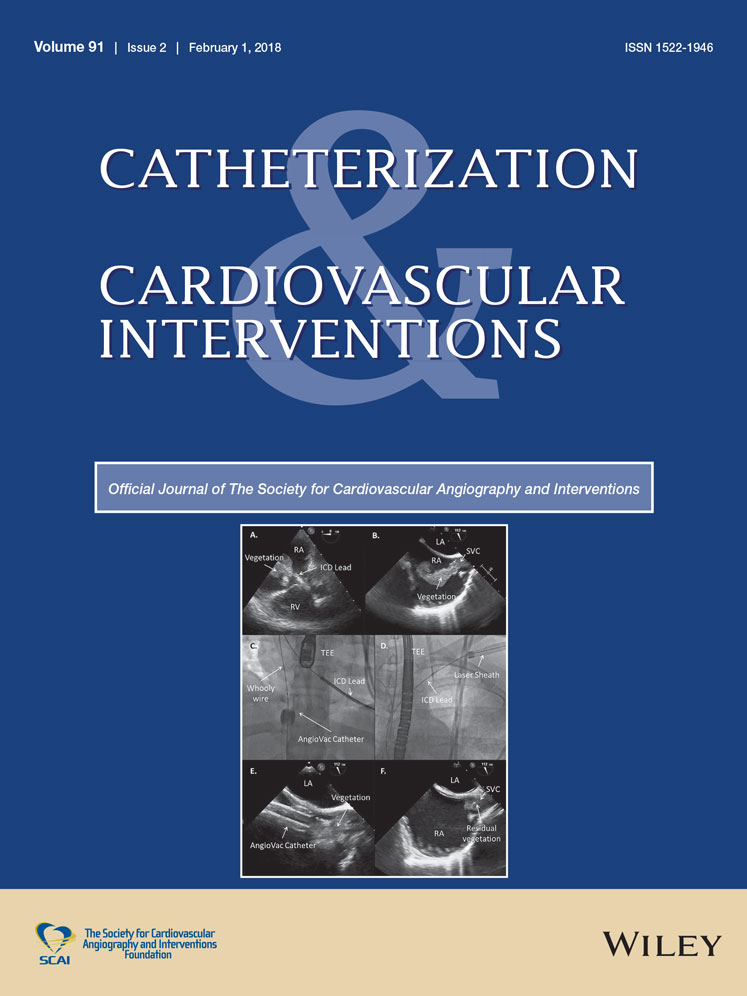Deferred or immediate stent implantation for primary percutaneous coronary intervention: A meta-analysis of randomized trials
Abstract
Objectives
To perform a meta-analysis of randomized trials comparing a deferred versus immediate stenting strategy for primary percutaneous coronary intervention (PCI).
Background
Deferred stent implantation has emerged as a potential strategy aiming to reduce the thrombus burden and improve micro-vascular reperfusion during primary PCI.
Methods
Electronic databases were searched for randomized trials that compared a deferred stent implantation versus immediate stent implantation strategy in patients undergoing primary PCI. Random effects risk ratios (RR) were estimated for the outcomes of interest.
Results
Four trials with 1,570 patients were included. A deferred stent implantation strategy was associated with a lower incidence of no-/slow reflow (RR 0.49, 95% confidence interval [CI] 0.24-0.96), and improved myocardial blush grade 3 (RR 1.42, 95% CI 1.14–1.77). At a mean follow up of 34 ± 15 months, both strategies were associated with a similar risk of all-cause mortality (RR 0.85, 95% CI 0.58–1.24), cardiovascular mortality (RR 0.84, 95% CI 0.48–1.45), reinfarction (RR 1.54, 95% CI 0.43–5.49), and stent thrombosis (RR = 0.35, 95% CI 0.04–3.35, P = 0.36).
Conclusion
In patients undergoing primary PCI, deferred stent implantation is associated with improvement in surrogate outcomes, but does not appear to improve clinical outcomes. Future randomized trials are encouraged to identify the patient population who might benefit from a deferred stent implantation strategy (e.g., high thrombus burden).
CONFLICT OF INTEREST
Nothing to report.




